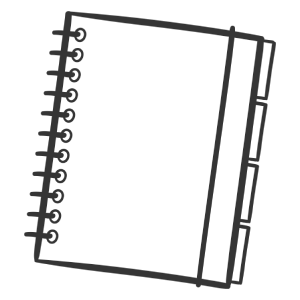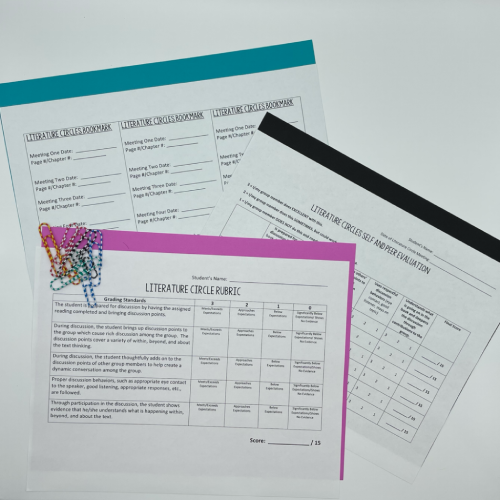Two of the last professional development sessions that I’ve taught have been on how to talk to students about their writing during writing conferences. It’s really gotten me thinking about the way that I talk with my students, and I definitely thought that it was worthy of a blog post. The professional development book that we read and discuss while talking about this is How’s It Going? by Carl Anderson. It is a book all about holding writing conferences with students. Carl Anderson really has a way of explaining what to say and providing the rationale about why to say it. His priorities in student learning are really in the right place, and it is an enjoying text to read and relate to as a language arts teacher.
The two big questions that I’ve taken away from his book that I ask myself after I’ve conferenced with a student are these:
1. Can I name what I’ve taught this student during this writing conference?
(Many times we engage in a discussion with students about their writing and end up on a tangent or try to fix everything. The student walks away and I, as the teacher, am unable to put a finger on what I’ve taught that student to do as a writer today. It is my goal each time a child leaves a writing conference with me for me to be able to say, “I taught Abby how to do _________ in her writing today.” A teaching decision in a conference is something that you must come to quickly as you listen to the student talk about what they’re thinking about their writing and look over part of their writing. As the teacher, you must commit to what you’d like to teach them during that conference. There may be 10 different things that come to mind after looking at their writing, but I would suggest focusing in on one topic and committing to it.)
2. Did I teach the writer or the writing?
(Once again, when a student walks away from a conference, I ask myself if I simply fixed the piece of writing that he/she was currently working on, or did I help that student become a better writer in a way that he/she will be able to apply to future writing. Did I make the learning generative, or did I teach the student that when they bring their writing to me in a writing conference I will simply fix everything for them? Let me be clear: I MAKE THIS MISTAKE ALL THE TIME. There are many times, even after me being aware of it, that a student walks away from a conference, and I know that I’ve fixed the writing, but I’ve done little to help that student grow as a writer. It’s a constant struggle and balance for a person like me who, by nature, is a bit of a perfectionist. I sometimes feel guilty if I let obvious errors stay in their writing without addressing them. Two things have helped me deal with this. The first is that we have to keep students’ Zone of Proximal Development (ZPD) in mind. Students are not ready to take on ten different things that they’re doing wrong in their writing. To try to address ten different things would completely overwhelm them, and they would not be able to transfer all ten of those skills to their future writing, which really should be the ultimate goal. Secondly, as a teacher, I should be holding different types of writing conferences dependent on what phase of the writing process my students are in. Depending if they are forming ideas, drafting, revising, or editing, my conferences should revolve around that phase of the writing process. If a student is generating ideas for a piece in their Writer’s Notebook, I shouldn’t sit there in a writing conference and pick at their use of homophones. I should be focusing the conference on their idea development. This has really helped me focus writing conferences and feel okay with picking one line of thinking to go deeper with.)
So here are some of my favorite “lines” that I keep by me while holding writing conferences to remind me of language to use. Having this language on hand really helps hold me accountable for keeping a conference a conversation between student and teacher versus me just completely taking over. It is important to hear how the student views his/her writing and sees himself/herself as a writer. Hearing their voice should impact how we individually teach that student during the conference. This language was taken from Carl Anderson’s book, How’s It Going?.






